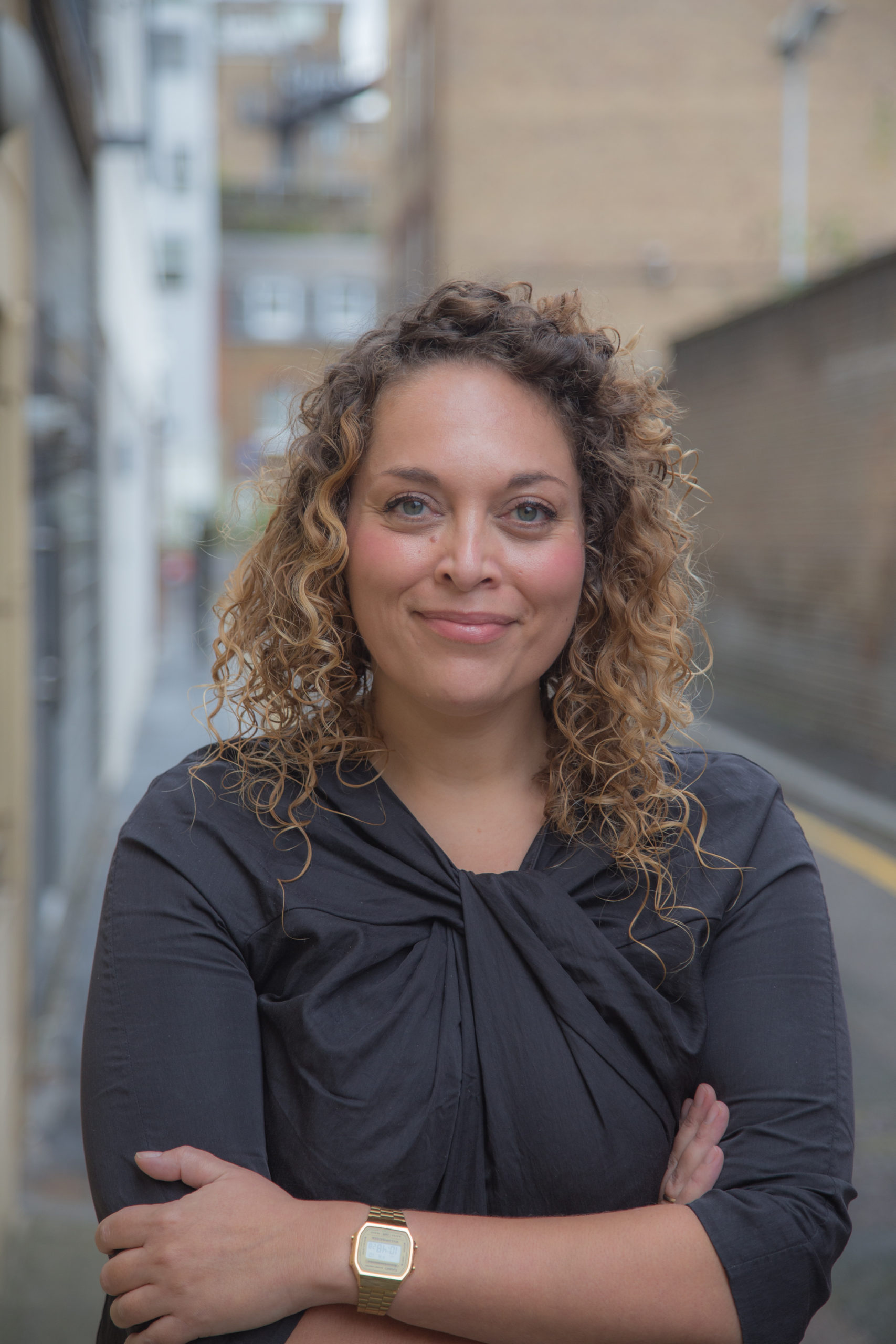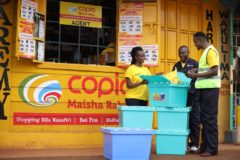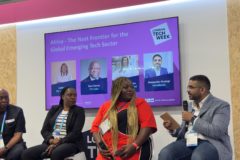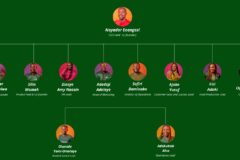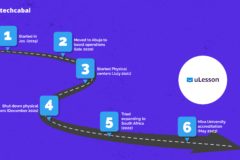Jessica Hope is the founder of Wimbart, an independent PR agency specialising in Africa and emerging markets. Since 2020, her company has organised a free PR mentorship and business support programme called Wimbart Office Hours (WOH). This programme is designed to equip early-stage African startups with tools to navigate media as well as business insights.
Applications for the fourth edition of WOH are currently ongoing, and TechCabal had a conversation with Hope about the programme’s origins and what to expect from WOH4.
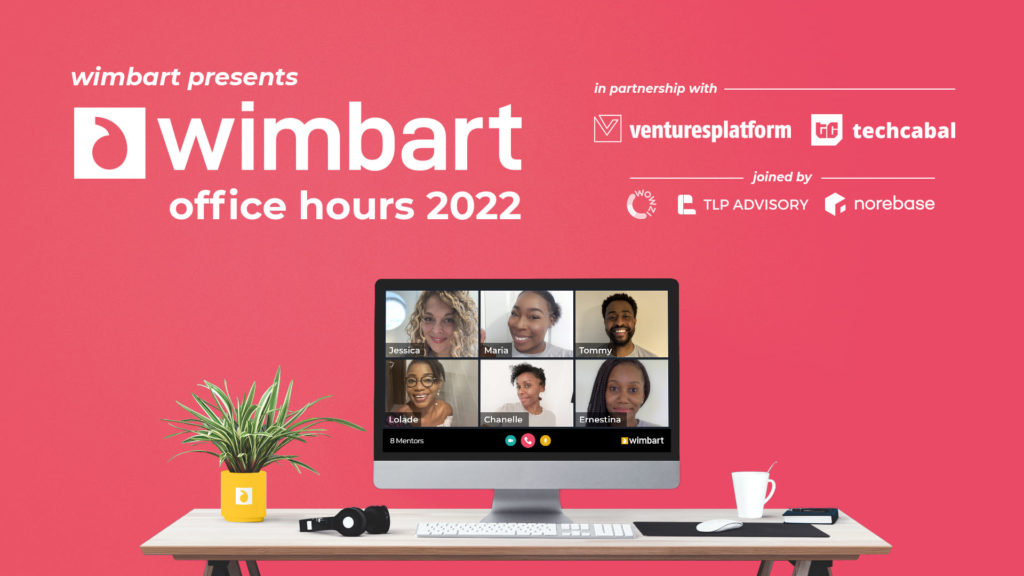
How did you get started creating Wimbart?
Jessica Hope: I like to consider myself a failed journalist because straight after university, I worked as an editor at a magazine owned by a few friends. After that, I moved into public relations and worked with museums until one of my friends, Jason Njoku, secured Series A funding for his startup, iROKOtv. He managed to convince me to quit my job and join him as a PR person. PR for Jason was a success, and that spurred me to seek out even more international press coverage, leading me to pitch to a couple of Silicon Valley journalists. Unfortunately, they were not convinced and sent me an email that read, “We aren’t writing about Nigerian tech fraudsters.” This experience made me even more determined.
After that, a couple of African startups asked Jason if they could use my services, and that’s when he saw the need for my skill set beyond iROKO and broached the idea with me. This was how Wimbart started, and my work with iROKO made it relatively easy to penetrate the market.
At what stage does it become imperative for startups to seek PR?
JH: PR is strategic, and you should start planning for it months in advance. Some startups assume the right time to engage PR is just when they want to do a press release, and that could not be further from the truth. You do not get PR as soon as you raise. You start working and get PR months before you want to raise. PR should come as soon as you start to get some traction and want to get some kind of publicity for yourself.
That being said, some companies, however, do not need PR. I have met companies who did not engage in any form of PR and yet still make millions in revenue, scaling, and attracting talent and investors.
From what perspective would you advise early-stage startups to approach PR? What common pitfalls should they look out for?
JH: Early-stage founders need to approach PR from the viewpoint of discovering their unique selling point and communicating that.
The very first pitfall to avoid is thinking that everything you do is newsworthy. It might sound brutal, but this is necessary to learn. A lot of startups struggle with being critical and discerning what’s newsworthy about their company.
What do you think startups should look out for when choosing a PR company?
JH: Attention to detail is quite important. I also think that the PR agency or person should have a track record of being able to secure press, as well as have good media relations. You want a PR agency that understands your sense of urgency, can counsel you, provide strategic advice, and mop up tears if you’ve had a bad day as well.
Another thing to look out for in a PR agency is proactiveness. One of the things we do at Wimbart is that we constantly think about our clients in different ways. Instead of waiting for our clients to come to us, we go to them with various new ideas.
What do you look out for before deciding to take on a client?
JH: We’re always swayed by interesting and unique companies. I am always drawn to dynamic, eccentric CEOs who are forward-thinking visionaries. I also look out for people who are realistic and trust our process, by understanding and respecting Wimbart as PR professionals.
Since you started this job, what is a learning that has surprised you?
JH: One thing that has surprised me is that it is so much harder to scale a company than it is to start one. Another thing is the importance of talking with other entrepreneurs about your experiences and problems. When you speak to people who have gone through or are going through the same things as you, it’s affirming in a way because it confirms that you’re not alone or having the worst time. Community and networking are super important in the entrepreneurship journey, and that’s why we prioritise them in the Wimbart Office Hours programme.
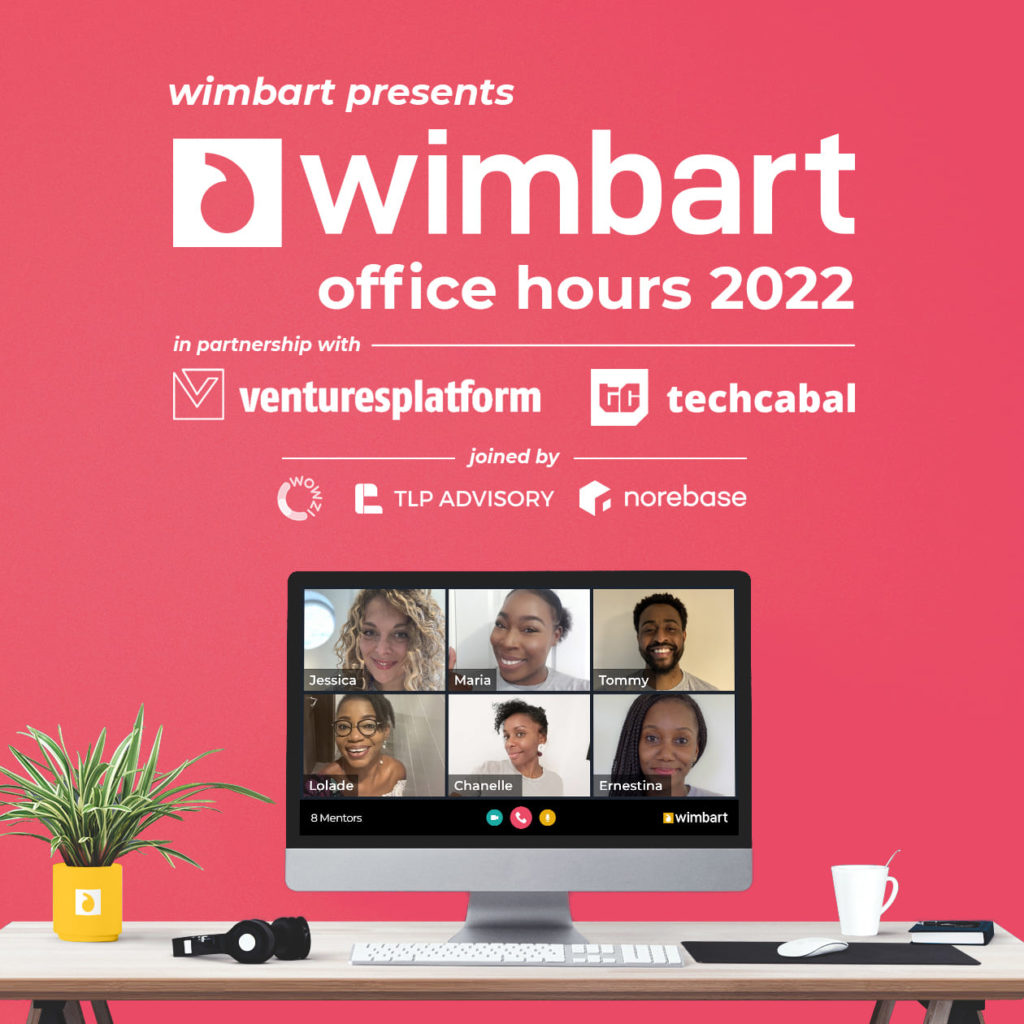
What drew you to targeting early-stage startups through WOH?
JH: Our first clients at Wimbart were really early-stage companies. We did the first-ever funding announcement for Paystack and Piggyvest. As we grew and started working with bigger clients and budgets, we realised that we weren’t providing services to smaller, early-stage startups again, and so this idea came to us. I was also mentoring at the Google Launchpad Accelerator programme at the time, and I saw how important one-on-one support was. There’s information on the internet that teaches you how to write press releases and how to do PR, and while I think that’s a great starting point, there’s nothing quite like having someone to answer your questions in person.
During the Office Hours sessions, these startups get to actually ask very specific questions about their businesses as well. Startups are different, and they have different pain points, so our mentorship sessions are structured such that they help people actually get specific information and ask specific questions about their businesses. This makes the information tangible.
What successes have you recorded in previous editions of WOH, and what successes do you hope to record in this fourth edition?
JH: The very first success is seeing startups secure a lot of press without PR agencies. I really love seeing and sharing news of our cohorts securing press that’s beneficial to their business. We’ve seen our cohorts in major publications like Reuters, BBC, and TechCabal, amongst others. Another thing is seeing them establish communication with investors on their own. For successes we want to record, we want to be able to equip them with the communication tools needed to help them achieve whatever it is they want to achieve.
What are some special or surprising things you’ve learned in the course of WOH?
JH: While it’s always interesting to hear about new businesses and their challenges, what fascinates me the most are some of the solutions and their approach. Because we work with mainly later-stage companies, we are usually exposed to a different set of problems than those early-stage startups face. Meeting with these early founders and hearing about their startups just unleashes tons of ideas. This is mainly because they are at a stage where you don’t have to be too “corporate” and no one has defined ideas on what needs to be done. This lack of restraints helps you become even more creative.
What can we expect from WOH4?
JH: For this edition of Wimbart, we can expect more rounded in-house talks. We are excited about having companies from different niches like TLP Advisory, Norebase and Wowzi, which we believe our cohort will be really interested in. Wowzi is leading in the creative economy and influencer space, which is one space we’ve hardly explored as we focus more on B2B, corporate, and tech. This year, we’re more dedicated to providing our cohort with more information and access to diverse operators
We have 3 keynote talks for this edition. One from me is an introduction to PR and communications. The second will be from Kola Aina [founding partner at Ventures Platforms], which will be focused on building relationships and communicating with VCs, teaching the importance of not only building a good relationship with VCs but maintaining that relationship as well. The third keynote talk will be delivered by Tomiwa Aladekomo [CEO of Big Cabal Media] on building relationships with journalists.
All of these tools are aligned such that they will provide the cohort with a good foundation to discover their unique selling points and ask the right questions.







